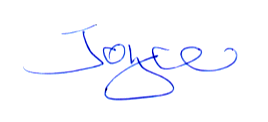On most weekday nights, my husband and I hunker down in front of the television to watch the news. As you might have guessed, we’re news hounds, addicted to knowing and unpacking the day’s events, however grisly or shocking. It’s an old habit on my part, having been raised in a family where my father kept one ear glued to the radio and the other to his customers while running the furniture store he owned and operated on Windsor’s main street.
As a child, I couldn’t figure out why he was so utterly fascinated by the news during dinner and again at 11 p.m. Most evenings, our little family of three ate dinner with the TV blaring the latest developments in the Vietnam War. I was too young to know why the Americans were in Vietnam or why the North Vietnamese were fighting back with such fervour; yet as the war continued, and later, when I moved to a university dorm, the reasons became much more evident.
A young woman from Prague lived in the room adjoining my dorm. It was 1970, and she’d escaped from Czechoslovakia after the Prague Spring when Soviet tanks rolled into her city to put down her country’s growing desire for democracy rather than the iron-clad control of Soviet Communism that overwhelmed the Czechs. The Prague Spring failed, but the young woman showed me what happens when politics and power directly affect lives. I never saw her smile.
Today, the geopolitical situation is as complex as it was back in 1970. Between the climate crisis, the war in Ukraine, the coming U.S., election, and the plight of refugees fleeing from poverty and corruption, not only am I as glued to the news as my father was, but I’m unsure how we got to this place. That’s why, when I was in my local library the other day, I checked out The Second Mountain: The Quest for a Moral Life, a book by New York Times bestselling author and columnist David Brooks.
For years, I’ve been reading Brooks. He’s a political and cultural commentator, born in Toronto, where his father was completing a PhD at the University of Toronto. Brooks describes himself as a moderate. In December 2021, he wrote that he placed himself ‘on the rightward edge of the leftward tendency –in the more promising wing of the Democratic Party.” Mainly, Brooks stands on the side of conservative thinkers Edmund Burke and Alexander Hamilton.
Now, I’m finding Brooks as a safe and sturdy marker in this divisive geopolitical universe. As I ricochet between CNN, CBC, MSNBC and CTV news and analysis, I can’t help but wonder what is actually going on and why it is important, at this moment in time, to put ideology second and moral concerns first.
Insights from the Second Mountain Book by David Brooks
I find my concerns illuminated in Brooks’ “The Second Mountain.”
“Every once in a while, I meet a person who radiates joy,” Brooks writes. “These are the people who seem to glow with an inner light; they are kind, tranquil, delighted by small pleasures, and grateful for the larger ones. These people are not perfect. They get exhausted and stressed. They make errors in judgment. But they live for others and not for themselves. They’ve made unshakable commitments to family, a cause, a community, or a faith….Life isn’t easy for these people. They’ve taken on the burdens of others. But they have a serenity about them, a settled reserve. They are interested in you, make you feel cherished and known, and take delight in your good.”
Brooks is talking about those he describes as having a “two-mountain shape.” They graduate from school, get a job, start a family, separate themselves from their parents, cultivate their talents, build a secure ego and try to make some mark on society at the top of their ascent of the first mountain.
Then something happens, as Brooks explains. Either they find that the ascent up the mountain isn’t as fulfilling as it once promised to be, or something dire occurs. It can be ill health, a struggle with addiction, or a huge financial setback. It can be many different things, usually a life-altering tragedy that was not part of the original plan. Some people shrivel up when they fall from the mountain peak. According to Brooks, “They get more afraid and more resentful. Their lives become smaller and lonelier. We all know older adults who nurse eternal grievances. They live their lives in an endless tantrum about some wrong done to them long ago.”
For others, life off the first mountain is the making of them. “They are finally able to love their neighbour as themselves, not as a slogan but a practical reality.” For Brooks, this change means that pursuing self-interest –money, power, fame—is not all it’s cracked up to be. That’s when they start doing the things that are truly worth doing: perhaps a moral cause, intimacy, responsibility and commitment.
“This second mountain is not the opposite of the first mountain. To climb it doesn’t mean rejecting the first mountain. It’s the journey after it,” writes Brooks. “It’s the more generous and satisfying phase of life” that often comes when older.
When I watch the news tonight, I’m going to ponder David Brooks’ The Second Mountain and imagine what our world could be if we stepped back and considered our place in it, what truly matters to us and those we are closest to. If it sounds too simple, perhaps it is. Trying to make a positive difference in others’ lives, to curtail the envy and greed, or the small-mindedness can seem insurmountable unless we each focus on our little patch of earth. If more of us found our second mountain, the news would be entirely different, and we could all sleep better at night. Maybe I could even turn off the news.
































